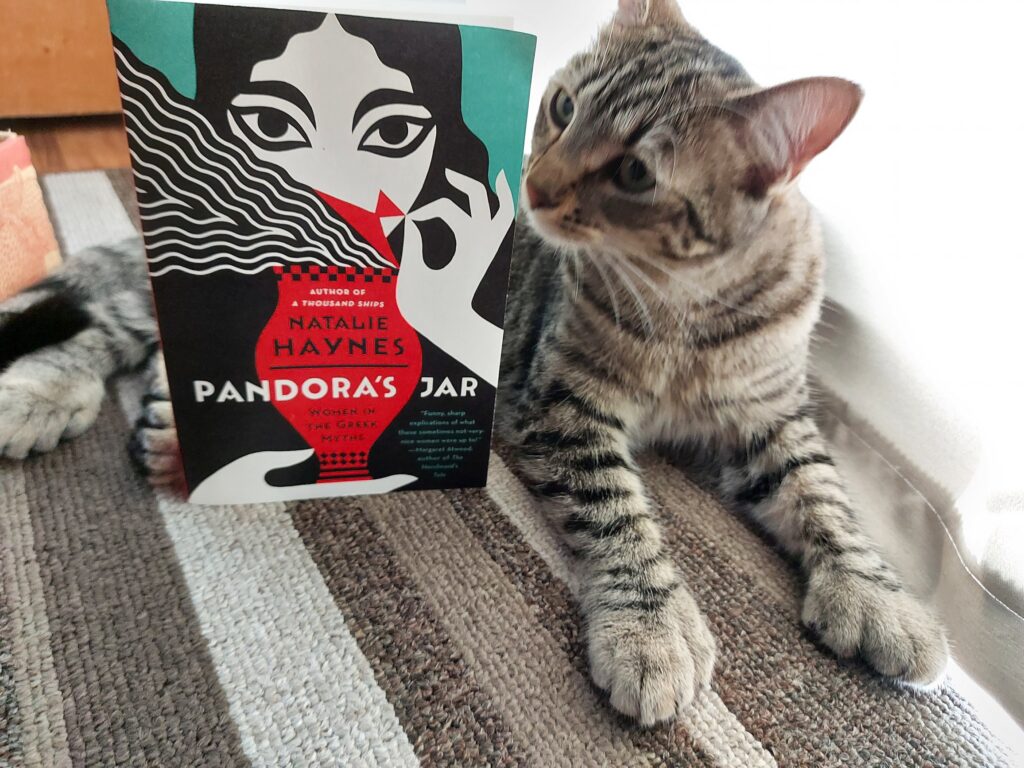Pandora’s Jar by Natalie Haynes

Pandora’s Jar by Natalie Haynes is not what I thought it would be. I must have been so excited about a new Natalie Haynes book that I did not comprehend the synopsis before I bought it. I thought it would be a collection of short stories she wrote about the women featured in Greek myths. Instead, it is an examination of Greek myths where Haynes uses her extensive knowledge of Greek mythology to trace how white men changed the origin stories of Greek mythological women to suit their own ideas of women. But even though it turned out to be a completely different book from what I thought I would be reading, Pandora’s Jar is an interesting book. If you have any interest at all in Greek mythology, I think you will find this book interesting as well.
The most perfect example of how white men have changed an origin story to suit their needs is the story of Medusa. In my “sanitized” education of Greek and Roman mythology waaaaay back in elementary school, I learned that Medusa was a monster with snakes coming out of her head and her gaze would turn you to stone. But through Pandora’s Jar, I learned that Medusa was once a beautiful woman who was raped by Poseidon in the temple of Athene. This pissed off Athene, but instead of taking it out on Poseidon, Athene turned Medusa’s hair into snakes (talk about victim blaming). It is not clear when or from whom Medusa got the power to turn people into stone with her gaze but let us ruminate for a moment on how she lives in a cave, far away from people, when Perseus comes along and cuts off her head. If Medusa really was a monster, would she be living in a place where she could not hurt people? As for Perseus, he is made out to be some great hero for cutting off Medusa’s head, but he cuts off her head while she is asleep, so it is not like she was trying to kill him and he killed her in self-defence. Then Perseus runs around with Medusa’s head, using it to turn his enemies into stone, symbolizing a woman’s loss of agency over her own life.
You would hope that after thousands of years, things would be different for women, but unfortunately, white men continue to control a woman’s narrative today. Look at what is going on in the US, with the Supreme Court overturning Roe v. Wade and basically setting back women’s rights by decades. It is equally heartbreaking and angering and makes me feel sick to my stomach.
But to get back to the topic at hand, which is Pandora’s Jar, it is not a dry, academic treatise on Greek mythology. Haynes has an engaging narrative voice, and she often uses humour throughout the book. She also references pop culture, such as Buffy the Vampire Slayer and Beyonce, which just goes to show the continued influence of Greek mythology and its impact on women today. As I said, it is worth reading if you are interested in this subject.